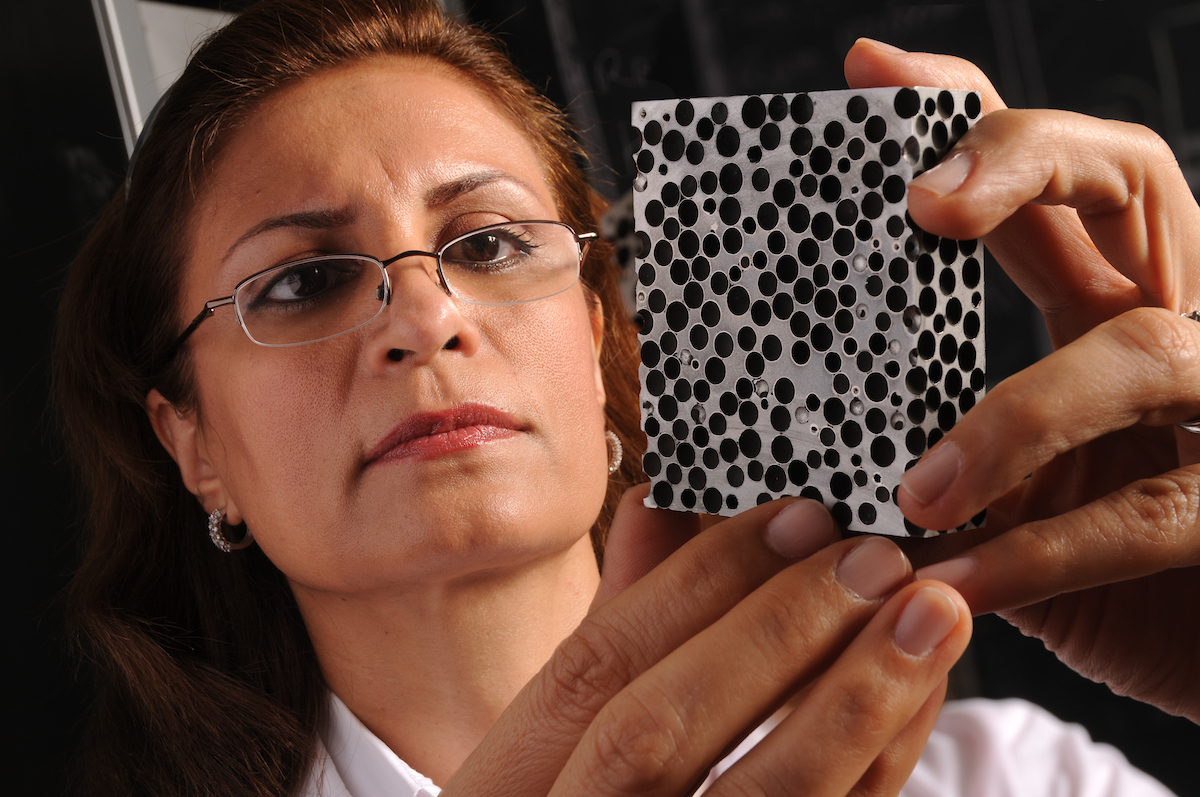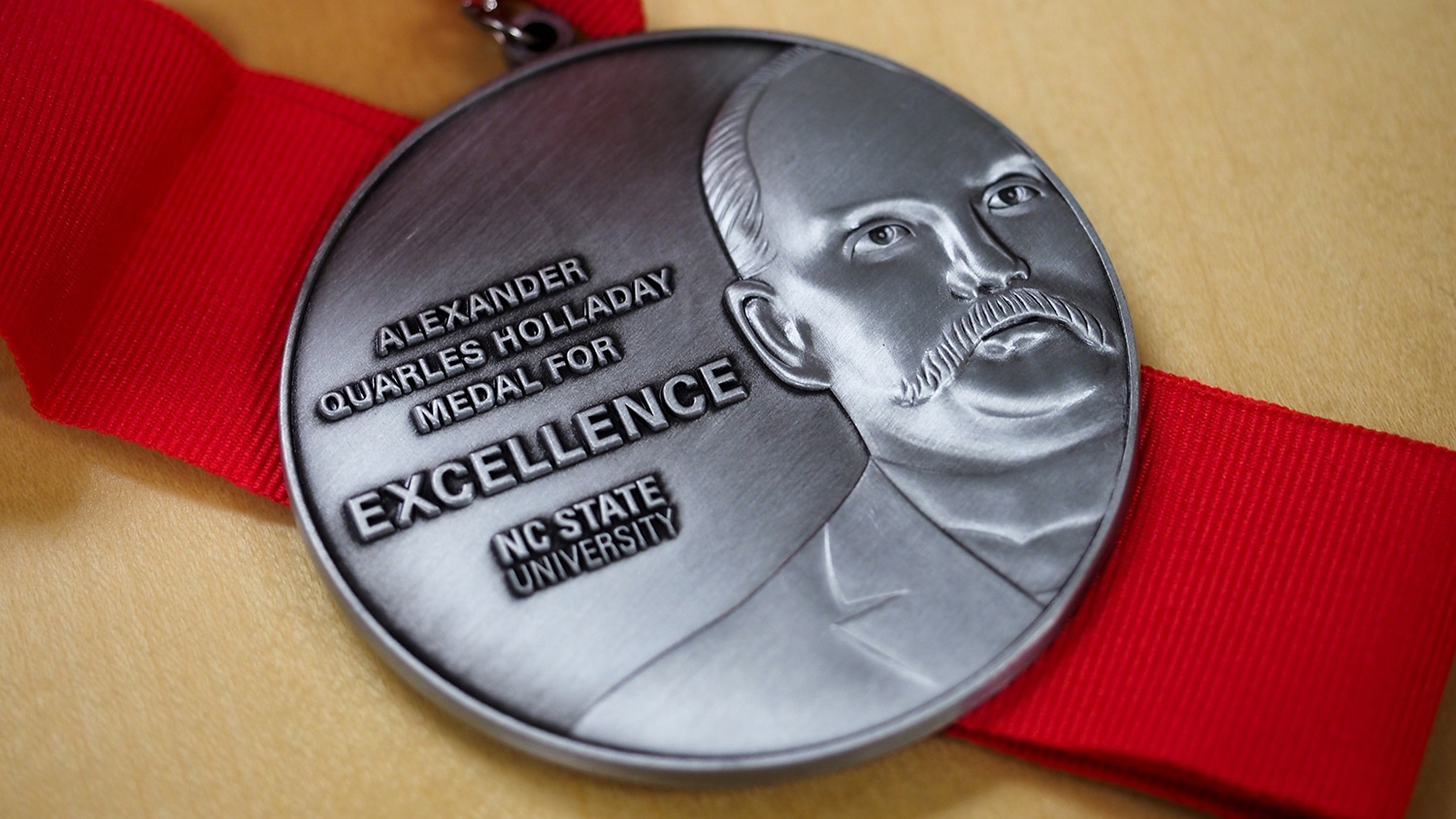Unlikely entrepreneur and professor takes her technology to the marketplace

Afsaneh Rabiei never imagined she would be an entrepreneur, but that was before Rabiei, who is a professor of mechanical and aerospace engineering at NC State, invented a technology in NC State labs called composite metal foam (CMF).

The material is made from a combination of metal hollow spheres trapped inside a metallic matrix. It can be made from any metal or alloy and can be customized depending on the application.
Very quickly, Rabiei saw interest from a variety of different industry sectors for its application.
As of today, Rabiei’s company, Advanced Materials Manufacturing (AMM), has received grants from the U.S. Department of Energy, Department of Transportation, Department of Defense (Defense Innovation Unit) and the NC Small Business Program to support CMF applications in hazardous material packaging and transportation, aerospace and more.
“This invention started with a project funded by the National Science Foundation,” Rabiei said, referring to her 2003 CAREER Award. “So back then, the idea was to make a novel material as light as aluminum and stronger than steel. We later called it Composite Metal Foam. Fast forward to today and we currently have four issued patents on this technology.”
CMF looks and works like a bubble wrap, to protect items against various types of threats, but it also works like a foam to protect against extreme heat. It can protect against vibration, shock, ballistic, blast, fire and various types of radiation.
CMF is also three times lighter than the parent material that it is made of. As such, it can save energy when used in the structure of moving systems such as cars, trucks, trains, helicopters, airplanes and more.
In one experiment, a bullet from a 7.62 round left only an 8 mm indent in CMF composite armor as compared with a 44 mm indent on current standard armor, according to the National Institute of Justice (NIJ). This 5.5 times less damage to the armor is due to the energy-absorbing properties inherent in CMF’s structure.
When Rabiei first invented CMF, it appealed to organizations outside the academic world, from medicine to aerospace to automotive, defense and more.
“I always said, I’m just a researcher,” Rabiei said. “I’m not an entrepreneur, right? At some point, I went to a briefing where I was told that my invention was really interesting and could save a lot of lives, but as long as I kept it at the university, nobody would be able to benefit from it.”
After years of perfecting the technology and based on the interest from companies and government, Rabiei officially established a startup company outside the university to commercialize CMF. AMM is now the sole manufacturer and supplier of CMF.
AMM received its first Small Business Innovation Research (SBIR) award in 2020, and hired its first full time employee. The company is still growing and its budget increases every year.
In 2022, AMM received $2 million in funding and hired three more employees. The company is currently looking for three more employees to fill multiple positions.
Rabiei said she is still learning how to run a small business and take it off the ground.
“A wise business leader, who is also on the NCSU board of trustees, once told me that business is nothing but basic math and a lot of psychology,” Rabiei said.
“This and much more encouragement from inside the university, government and industry helped me to start the business for commercialization of CMF. I am excited to see it grow every day, thanks to all of the wise people who lifted me up with great advice, and the support that I have received along the way.”
- Categories:


